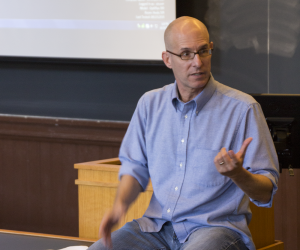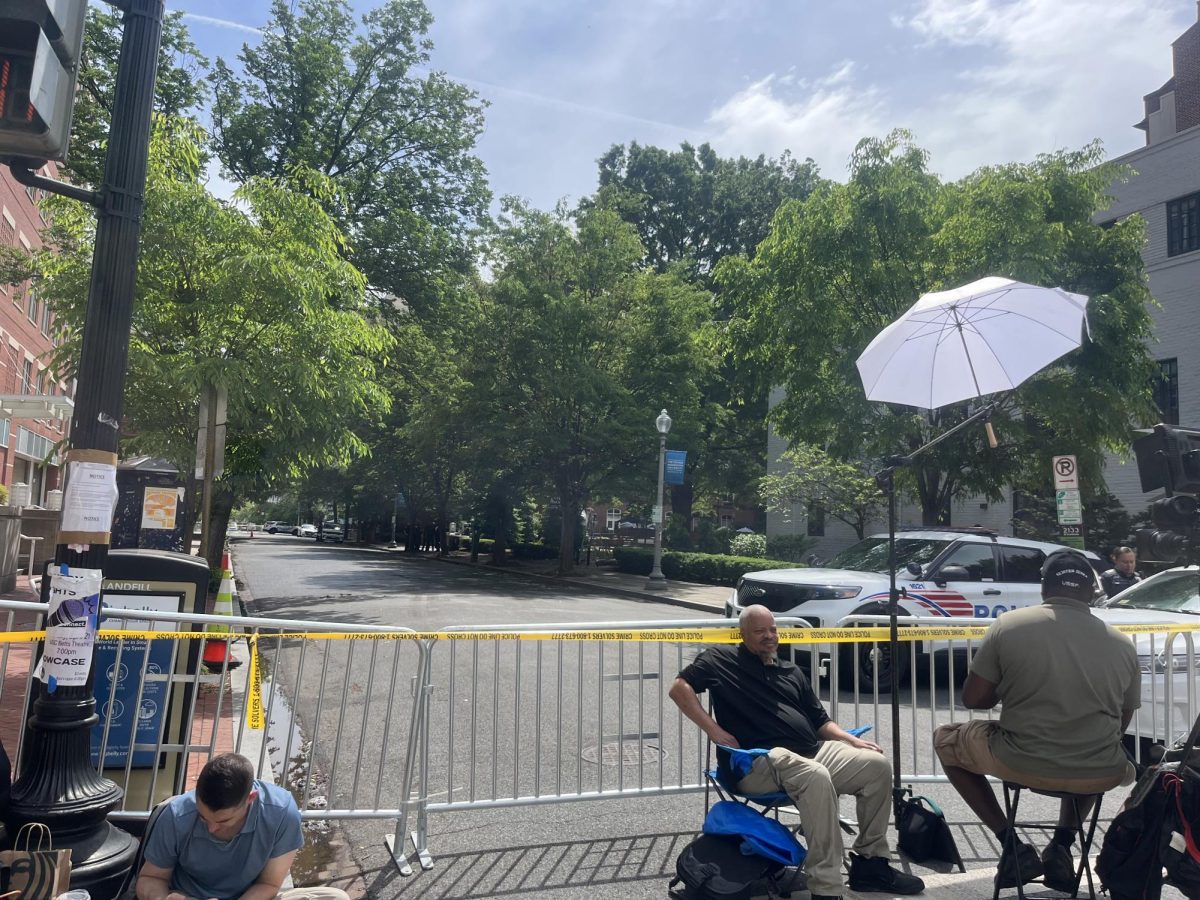
Clemson University Professor Todd May compared Marxism and anarchism at an event on Friday.
Panelists drew comparisons between Marxism and anarchism and explored the implications of anarchism’s decentralized and egalitarian structure on political action and the idea of revolution as part of a discussion sponsored by the Program for Justice and Peace Studies in Healy Hall on Friday afternoon.
Clemson University professor Todd May, one of the two panelists, examined the exploitation of labor under Marxism, resulting in fundamental problems in class relationships within capitalist society.
“Now what that means is that, if you want to change society, what you need to do is change the capitalist relationships of exploitation,” May said.
May said that this notion of exploitation corresponds to the concept of domination in anarchist thought.
“The concept of exploitation as Marx has it, I think would correspond in anarchism to a very different concept— and that is the concept of domination.But the concept of domination is not structured like the concept of exploitation in this sense,” May said.“Exploitation happens in a particular area…domination can happen in many different ways.”
He added that Marxism and anarchism also differ in that one cannot trace all societal problems to one area of anarchism, known as an Archimedean point, or a hypothetical point at which the observer can regard all topics completely and objectively.
“For Archimedes, there was some point [he] thought that if you could get this right point you could leverage the world. So it is a single place where you can leverage the world. There is no Archimedean point in anarchism,” May said.
He explained that the existence of an Archimedean point impacts how a revolution unfolds.
“If there is an Archimedean point, one key point at which the problems occur, what that means is that it would be good to have experts in that key point, the people who know what it is that is the problem can analyze it and then can point the way toward a solution,” May said.
The problem of anarchism, he continued, is multifaceted and lacking clear experts to be leaders.
This existence of experts and leaders can lead to a power issue post-revolution, which is not present in anarchism where change comes from below.
“One of the critiques of Marxism that Mikhail Bakunin, a 19th century Russian anarchist and founder of collectivist activism,made, and it turned out to be a great prediction, he said ‘You know what is going to happen, you’re going to have your revolution and at the end of your revolution you are going to have a new set of people in power and those new set of people are not really going to want to give up the power once they got it. So you simply are going to rearrange who is in power, but you are not going to rearrange the structure of power and domination,’” May said.
JUPS Program Director Randall Amster, the other panelist, said that some of the misunderstandings of anarchism stemfrom its decentralized approach, with a lack of hierarchy and coordination.
“So a lot of times people can do things in the name of anarchism that might not be widely embraced. There may be acts attributed to anarchism that it’s not necessarily clear who’s coordinating it,” Amster said.
Without the structures of domination that are currently part of our society, anarchists hope to create an order that is much more cooperative, panelists said.
“And so if we as a group decide that this is the thing to do and that we should be bound by certain norms and should have certain jobs and certainly if you violate them then we will criticize them and hold you to it. That’s very different from saying that ‘I’m going to be the police’ or ‘I’m going to be the Central Committee and I’m going to be the enforcer.’ The idea is that we all hold each other collectively to these principles,” JUPS Program founder and philosophy professor Mark Lance, the moderator of the event, said.
Jennifer Tubbs (SFS ’15), who attended the event, acknowledged that the anarchist concept of multifaceted domination seems to have more basis than the Marxist idea of one fundamental form of exploitation.
“I mean to me, this makes more sense, you know what I mean, the sort of radical egalitarian because there are multiple dimensions of domination and oppression,” Tubbs said.




















